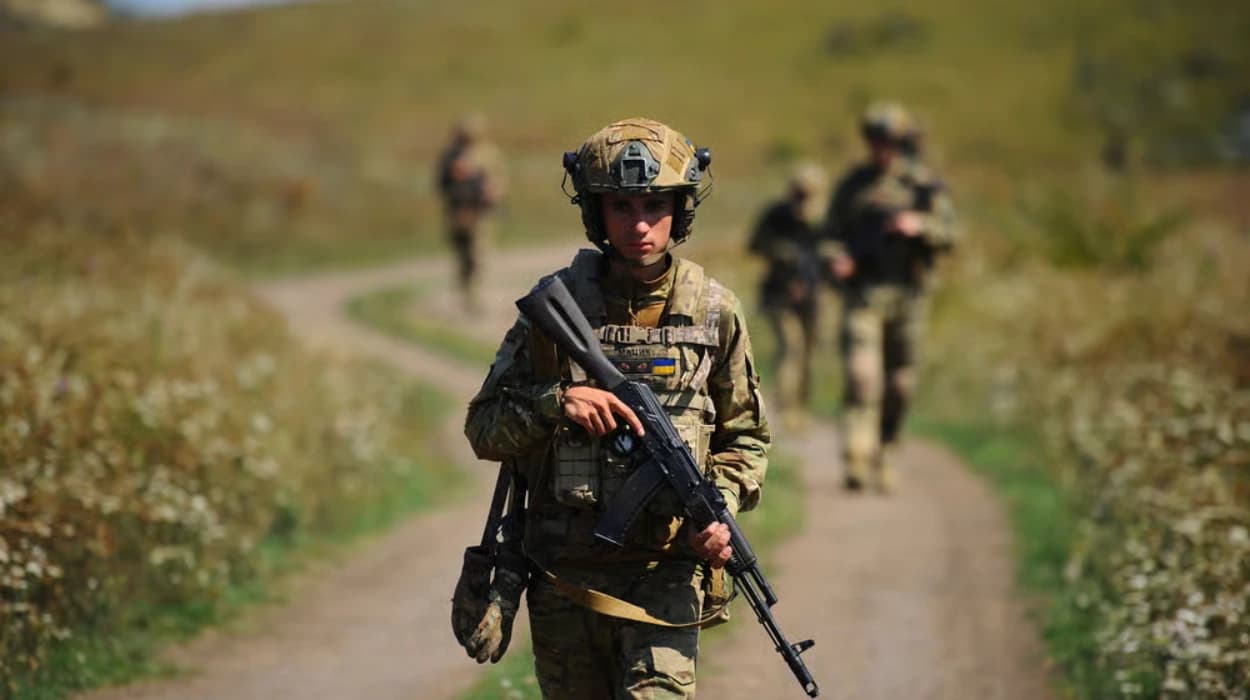Summary
- Britain’s armed forces head meets NATO counterparts.
- Discussion centers on Ukraine security guarantees.
- Focus on post-ceasefire European security plans.
- NATO supports European efforts for Ukraine stability.
- The meeting highlights ongoing regional security concerns.
Admiral Sir Tony Radakin discussed military options to ensure peace in Ukraine with other European military leaders and senior US defense officials in Washington, DC, on Wednesday.
Later, he participated in a virtual meeting of NATO's military committee, which Italian Admiral Giuseppe Cavo Dragone, the committee's chairman, called "candid."
The head of the defense staff, Admiral Radakin, held dinner with his American counterpart, General Dan Caine, on Tuesday night.
The meetings coincide with new preparations for a "coalition of the willing," headed by France and the United Kingdom, that would ensure Kyiv's safety in the case of a ceasefire.
One of the main concerns for any peace agreement for Ukraine is Western security assurances, which Moscow is adamantly opposing. Ukraine fears that Russia could use a ceasefire to reorganize and launch a new invasion.
Only the United Kingdom and France have so far expressed interest in sending troops to Ukraine to serve in a peacekeeping team.
Donald Trump denied an American ground contribution in an interview on Tuesday, but he did imply that the US would be open to offering air help.
Prior to Kyiv formally joining the alliance, his special envoy, Steve Witkoff, had proposed that the US could provide Ukraine a mutual defense pact akin to NATO's Article 5.
Following last week's summit between Mr. Trump and Vladimir Putin in Alaska, the "coalition of the willing" has resumed negotiations as the US president continues to press for a resolution to a problem that he claimed he could resolve on his first day in office.
Some in Europe were concerned that Mr. Trump may try to coerce Ukrainian President Volodymyr Zelensky into signing an agreement without adequate security guarantees, even though those negotiations seemed to produce little progress toward a deal.
In a show of solidarity for Mr. Zelensky during a meeting with Mr. Trump on Monday, Sir Keir and Mr. Macron traveled to Washington together with other European leaders.
A number of organizations connected to Kyrgyzstan's financial services industry were sanctioned by Europe Minister Stephen Doughty, who claimed that they had participated in Kremlin efforts to "soften the blow of our sanctions by laundering transactions through dodgy crypto networks."
In response, Russia sanctioned 21 people, including Jonathan Hall, the government-appointed independent assessor of terrorism legislation, many journalists, and former Labour MP Denis MacShane.
What role does the US plan to play in Ukraine's security guarantees?
The U.S. aims to help coordinate a multinational security guarantee package for Ukraine, to deter future Russian aggression and ensure Ukraine’s defense.
Pentagon and NATO planners are exploring options for post-conflict security assurances, which include potential deployments of European forces under their own national flags, with U.S. oversight of command and control.
Troops from European countries might be stationed in Ukraine as a deterrent force, operated independently of NATO but with American logistical and strategic support. The force would likely be smaller than earlier proposed troop numbers, serving mainly as a credible deterrent against renewed attacks.

